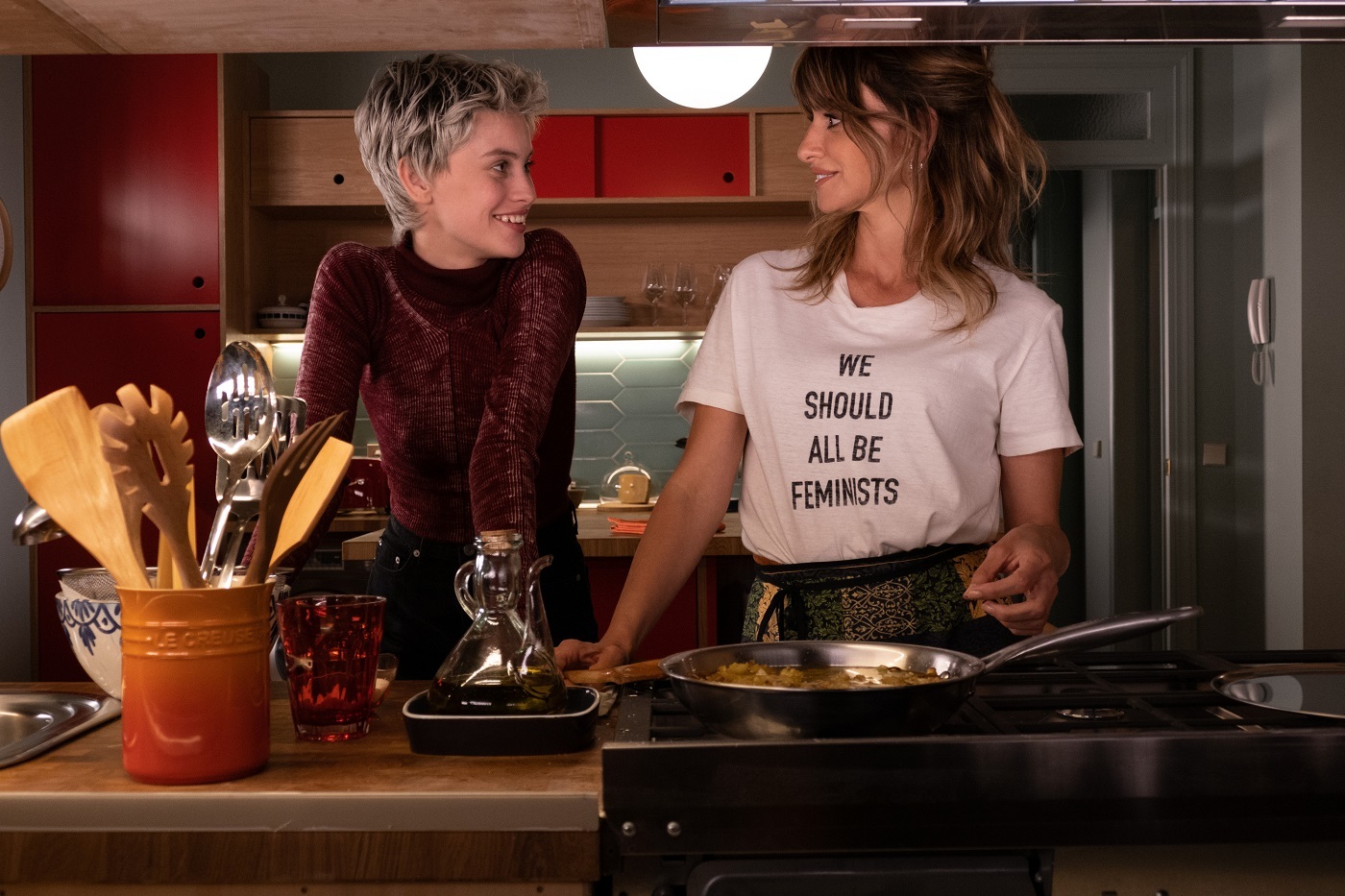
Film Review: Parallel Mothers
Film Reviews
Parallel Mothers
Director: Pedro Almodóvar
Sony Picture Classics
In Theaters: 01.28
Pedro Almodóvar’s long, prolific career spans all manner of genre and tone, but he’ll always be first and foremost our era’s premier melodrama artist. His finest movies—Volver, All About My Mother, High Heels—embrace narrative absurdity and garish color schemes for works full of style, shock and unsuspecting substance. After his arthouse semi-autobiography Pain & Glory, Almodóvar returns to the weepies for Parallel Mothers with Milena Smit (Ana) and longtime collaborator Penelope Cruz (Janis), following the pair as their initial connection in a maternity ward leads to a chaotic and unpredictable tapestry of high-velocity drama.
From the onset and throughout nearly every scene, Janis and Ana appear as visibly opposite forces. Janis wears autumnal, high-waisted corduroys, witty t-shirts and gorgeous patterned dresses, while Ana seems to have an endless supply of barely varying tracksuits and quarter-zips. Penelope Cruz’s hair falls around her head in purposefully messy locks descending from haphazard buns; after the birth of her daughter, Ana wears her hair short in vibrant metallic spikes. Almodóvar leaps at nearly every visual cue he could give to signal the generational, financial and ideological divides between these women—more than we see these characters through their actions or words, the coloring, staging and costuming of their world illuminate their identities.
And still, Janis’ and Ana’s concurrent childbirth experiences beget a cosmic tie that binds these two apposing figures together as Parallel Mothers unravels into a web of conspiracy, betrayal, deceit and confession guided by Almodóvar’s two favorite toys—sex and death. Whether it’s gunning for shock, humor, horror, sentimentalism or revelation, the film boasts no shortage of gasp-worthy twists and turns, each one-upping the last in drama and excess. A particularly fantastic and erotic scene (soundtracked to perfection by Janis Joplin’s “Summertime”) delivers a twist that feels at once unexpected and inevitable, a whiplash-inducing jolt from “I really can’t believe this is happening” to “I mean, of COURSE this was going to happen.”
In moments like this, Parallel Mothers balances suspense and reveal like it’s diffusing a bomb. The film adopts a rollicking, restless flow built off of rhythmic hard cuts that milks its suspense for every ounce of its worth—we already know what’s in Janis’ email before she opens it, but watching her eyes twitch across the blue light reflection and her finger shudder out each click in high-definition close-ups, hearing Alberto Iglesias’ score wind to the peak of its serpentine melodies and waiting through what can feel like eternal, breathless seconds still allows the eventual reveal to land like a gut punch of pessimistic tension release.
The real strength of Parallel Mothers comes from the film’s collective commitment to deepening its shock and awe with pathos. Bolstered by the ludicrous plot, the filmmaker and lead actors wrap themselves up in the mess and find the smallest, most meaningful pockets where relatable humanity peeks through this larger-than-life story. Some of the film’s more harrowing deaths, as well as Janis and Ana’s inevitable separation toward the film’s climax, arrive attached to an abundance of soap opera conceits, but Penelope Cruz’s iconic, loaded gazes and the way Milena Smit bears Ana’s pain with disarming casualness afford many heart-wrenching moments.
The shell of a stark political drama bookends the film and weaves throughout its narrative, providing Parallel Mothers with its most earnest and grounded dramatic element. The documentary-esque history passages stand in distinct contrast to the colorful cheer found elsewhere and dampen the fictive fun with bleak realities stemming back a century. Some moments where this narrative pokes through feel confusing and can derail the film’s otherwise unshakeable rhythm, but concluding Parallel Mothers around the unfurling of multi-generational trauma powerfully resolves the film’s thematic focus on invisible, unpredictable tethers and the persistence of (chosen) familial support in the face of relentless tragedy.
Much of Parallel Mothers tracks in familiar territory for Almodóvar, the story oozing with romantic deceit, matrilinear drama and sexual exploration. Recurrent visual metaphors centered around doors shutting or women cooking (there’s a shot of Penelope Cruz chopping carrots that feels almost copy-pasted from Volver) extend these idiosyncrasies into an all-encompassing artistic personality decidedly of its creator. I admit to wearing my bias on my sleeve, but watching a new Almodóvar film—especially one this juicy and gorgeous—feels like eating out at a favorite restaurant: I didn’t get anything better or worse than what I expected/wanted/needed, and it’s still some of the best stuff out there. –Audrey Lockie